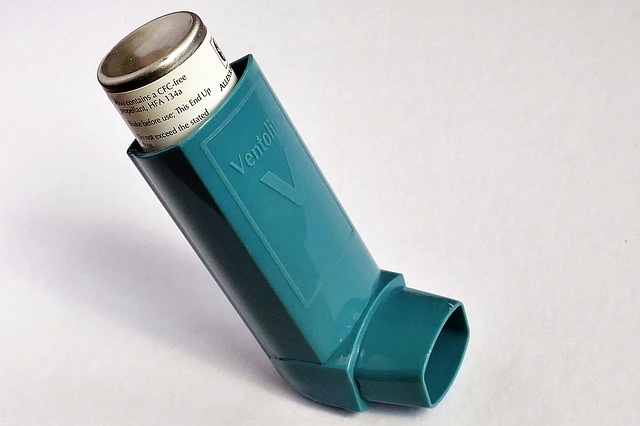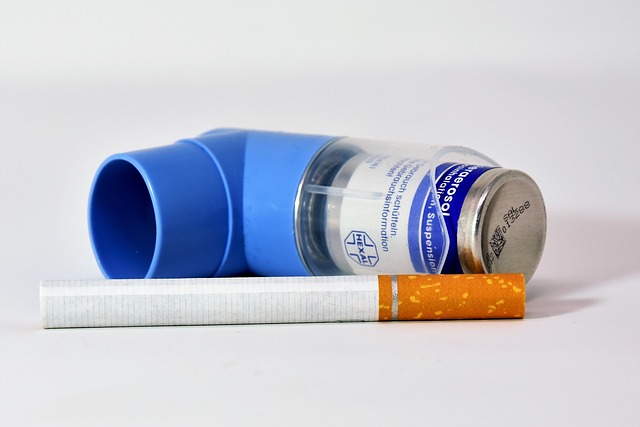Asthma is a dangerous condition that has the potential to seriously affect your life. It is best to make sure that you follow an effective management plan to reduce the damage to your body that can result from letting your asthma get out of control. This article gives you insightful tips on ways to control your symptoms of asthma.
Do not smoke around a child with asthma. Secondhand smoke is a huge health risk and directly plays a role in why people develop asthma. While making sure to never light up around your children, it is also vital that you make sure your kids are not around others who do not show the same courtesy.
Leukotriene Inhibitor
Having a fast acting inhaler is vital to save asthmatics from experiencing severe symptoms. Talk to your physician and find out if a leukotriene inhibitor would be right for you. A leukotriene inhibitor works by preventing leukotrienes. Inhibiting this chemical can lead to a decrease in asthma symptoms. Using an inhibitor will counteract the negative effects of leukotriene, thereby decreasing the occurrence of asthma attacks.
Unscented products are the safest option for those who suffer from asthma. Products with a fragrance raise the air pollution indoors, and increase the risk of an attack being triggered. Some of these products include incense, scented body sprays and air fresheners. Other asthma irritants include fresh paint fumes and new carpeting. As much as possible, try to keep your home filled with fresh, pure air.
When dealing with hay fever or a cold, you will notice an increase in your asthma symptoms. Many illnesses have side effects that could cause your asthma to flare up so badly that you need to have an increase in treatment. It is also possible that your physician will add an additional treatment to your routine until you recover from your illness.
Make sure you get a flu shot once a year if you suffer from asthma. Therefore, it is very important to avoid as many infections to the lungs as possible by getting a vaccine each year.
Be knowledgeable about the factors that cause asthma attacks in order to avoid the triggers or develop a plan for managing the symptoms of asthma. Smoke, pollen, or pet dander are common triggers. If at all possible, strive to avoid substances and locations that trigger your asthma symptoms or attacks.
Make sure that your rescue medication is at hand at all times during your travels. When you travel, you sometimes strain your body a little more than you think, which can make you a bit more susceptible to having asthma attacks. It's hard to have much control over your environment when you travel, which makes it more likely you will have some sort of symptoms or an asthma attack.
Support Group
You can join an online or offline support group. Asthma can be devastating and lead to lethargy and withdrawal from normal life - especially if it is quite severe. By getting involved in a support group you will also be speaking with other sufferers who may know of new scientific discoveries and treatment plans you may not be aware of.
During the months that are colder, wear a shawl, muffler or scarf that will cover your nose and mouth to help you avoid asthma attacks. You can help warm the air with these things before they bring any harm to your lungs. Breathing in air that's cold can trigger an attack, particularly in younger children that have moderate or severe asthma.
It is essential that you learn the proper ways to use all of your asthma medications, especially those used in rescue situations. A typical asthma treatment plan is daily medication backed up with an emergency inhaler. Asthma is a serious, chronic health condition, and it's vital that you take medicine to manage the disease properly and use the rescue medications as directed.
Asthma often takes time to develop, the symptoms appearing slowly. Sometimes, a person can die from their first asthma attack without actually knowing they had the disease to begin with! Because of this, if you notice that you have trouble breathing or are constantly coughing, you may want to visit your doctor. They can tell you if you have asthma and if there is a medication that you should be taking. Your doctor can also tell you if there is something you can do to prevent asthma from developing.
You should use your inhaler everyday regularly; however, be forewarned that the medicine can potentially lead to mouth infections, especially around your gums and teeth. One way to reduce the probability of such infections is to immediately brush and gargle after inhaling the medicine.
If asthma does strike, don't lose your cool. Immediately use your asthma inhaler, rest for 30 seconds, then use it once more. If you do this and you notice that your attack is worsening then you need to get help. Have someone take you to a hospital, or if necessary call an ambulance. Breathe into a paper bag for assistance in slowing your breathing during the trip to the hospital.
If you believe that your symptoms are becoming much worse, make sure you see your doctor. The best thing you can do is put the advice you just read to use and make asthma a mere annoyance rather than something that controls your life.





